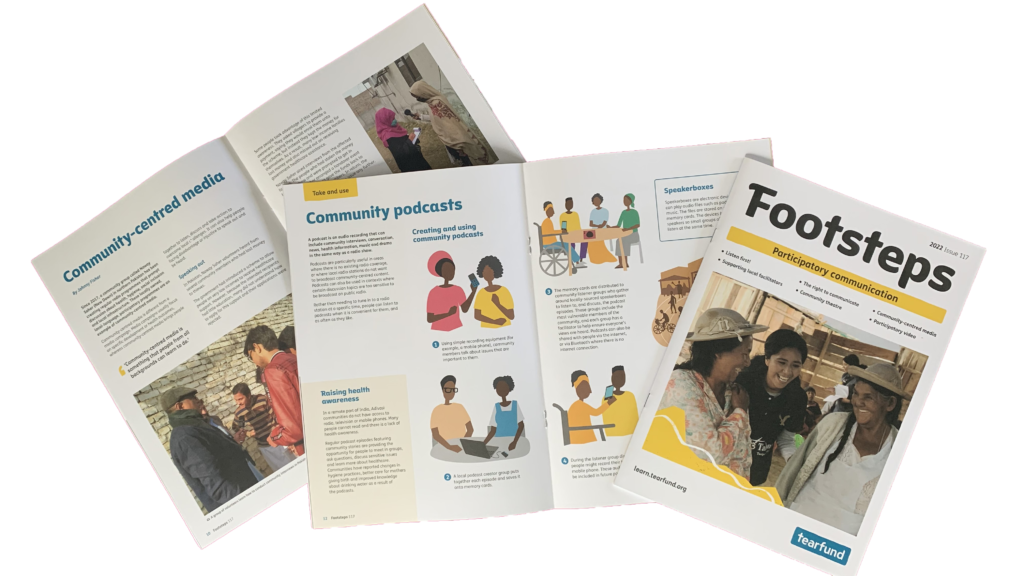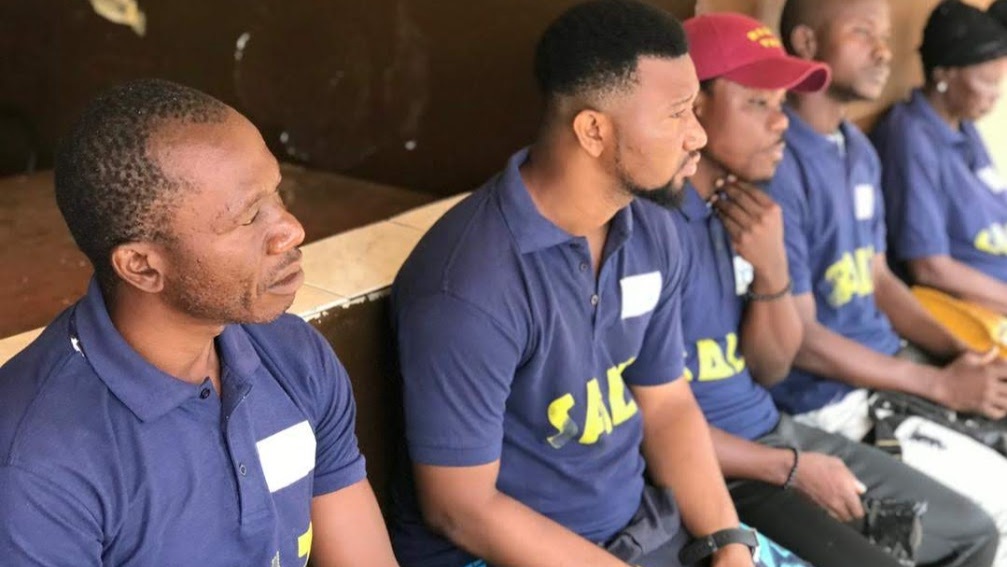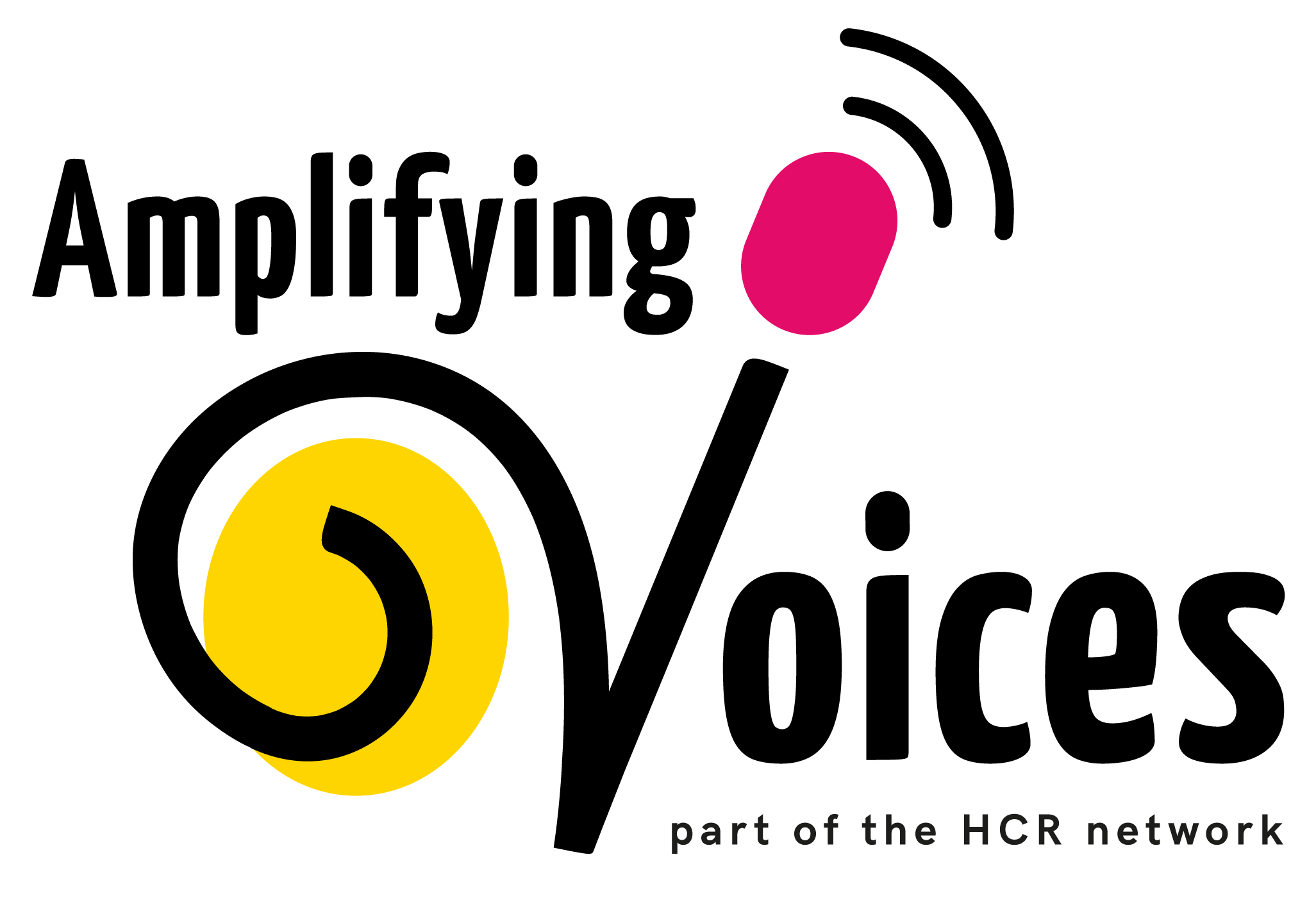
Footsteps to shared learning
Here at Amplifying Voices we see collaboration as an essential element of community-centred media. Collaboration also means sharing our learning, and being able to learn from others. So, we were delighted when Tearfund invited us to share some of our learning in the Footsteps magazine, a shared learning tool with a broad readership among community development practitioners. The theme of May’s issue is “Participatory Communication” which brings together voices from several organisations.
Sharing our learning
Our article in Footsteps explores two of the less obvious advantages of community-centred media – advocacy (amplifying the voices of those who have been disadvantaged) – and encouraging better understanding of others by promoting community conversations. We also highlighted the relative simplicity of audio as a medium, allowing people with a variety of abilities to participate in creating content.
Advocacy is highlighted in the article by Hazeen’s story about people, who were tricked by thieves into paying for a free government service, having their money restored after the thieves heard their stories on the radio and realised they had been discovered.
Amani FM is rooted in community conversations. At its outset, the radio programmes shared personal stories from people who were in conflict with each other allowing the listeners to “walk a mile in their neighbours shoes”. This promoted dialogue and understanding – foundations for peace.
Each Footsteps issue includes a Resources article designed to inspire communities to try some ideas out for themselves. This month “How to make a community podcast” is based on our partners’ experiences in Uganda and India, using speakerboxes in areas where radio is not possible or appropriate.
Learning from others
It is really encouraging to be asked to share our own learning. It is also encouraging to see the innovation of other organisations using various participatory approaches for effective communication. In this issue, my good friend Bobby Zachariah helps corporations become more effective in their social responsibility activities by getting better at listening, using an approach called SALT. You may have heard us talk about the SALT approach when we talk about the Amplify project in Freetown, Sierra Leone.

SALT volunteers listening to community stories. Freetown. BBN, 2019
In the spirit of listening well, Roland Lubett talks about the importance of understanding non-verbal communication – and we learn that non-verbal communication isn’t limited to body language.
The World Association of Christian Communication (WACC) talks about supporting women in Delhi to build skills in using mobile phones and other modern communication methods so that their voices are included in the decisions that affect them. From WACC we learn about taking a rights-based approach to communication.
Five Talents tell Ana’s story. Ana felt she didn’t have the right skills, but her personal qualities drew many unheard people into community conversations – and encouraged her own daughter to become a facilitator and communicator.
From Tearfund we learn about Community Theatre – reflecting the power of being immersed in a story. This article resonates with us because radio drama is a popular and effective tool in the places where we work. Our partners, BBN in Freetown, are currently using a radio drama series to address fears about getting the Covid vaccination.
Insightshare uses a similar approach to Amplifying Voices, but with video. Their article shares how participatory video enabled widows in communities in Ghana to move from whispering their issues among themselves to having the attention of chiefs and politicians.
An interview with a facilitator, who has learned sign language to be able to include deaf people in her workshops, reminds us to address hidden barriers to full participation in communication. As does a final article about the risks of the “smarts” behind social media which deliver a limited and tailored view of the world to our smartphones.
Such a breadth of participatory communication activities emphasises the value of collaboration – and helps us to avoid the pitfall of thinking our way is the only best way. But we are also very encouraged to be reminded that community-centred radio (and podcasts) play such an important role in completing this tapestry of participatory communication.
